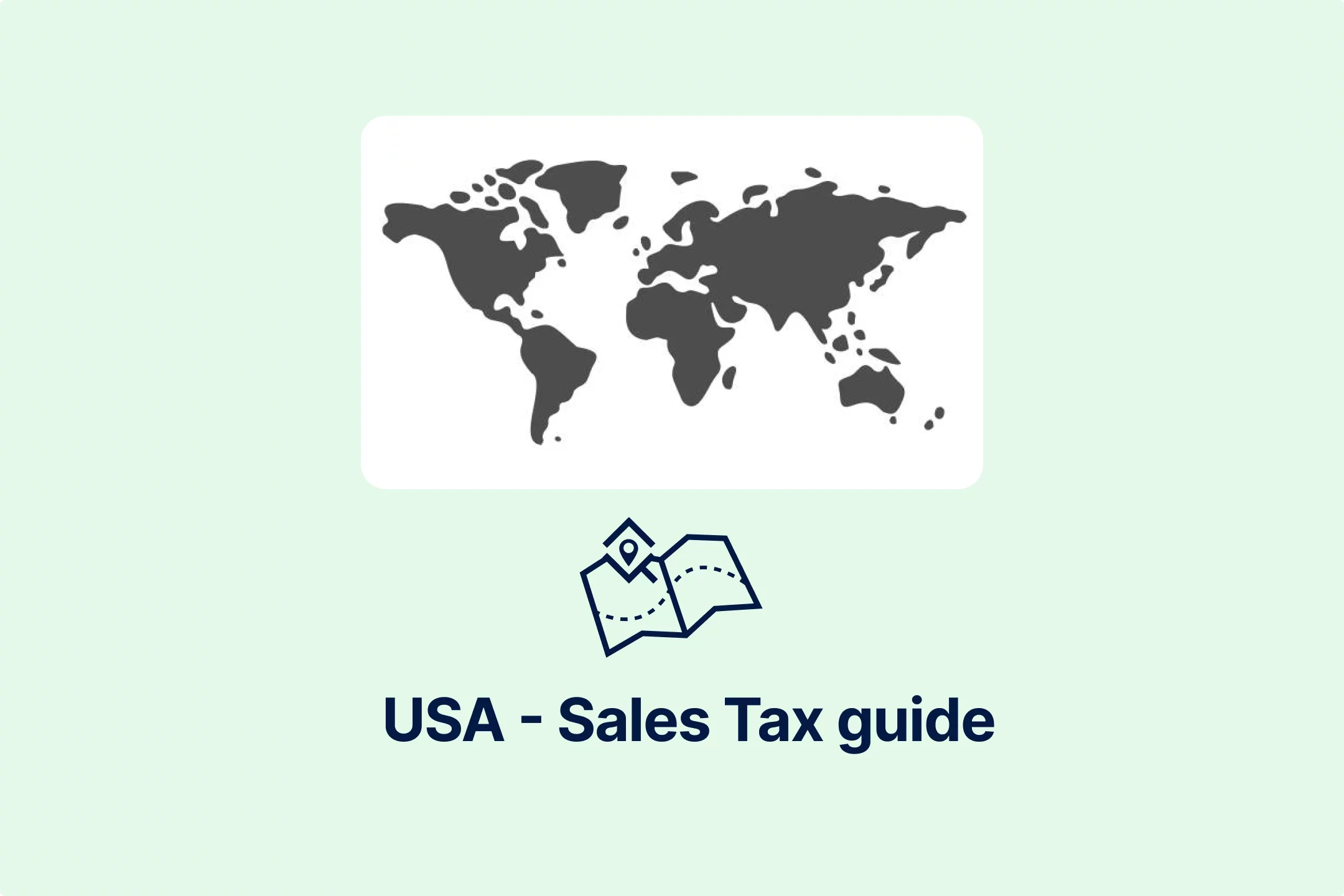Florida Sales and Use Tax Guide 2025: Rates, Nexus, and Digital Rules

| Economic Nexus Threshold | State Tax Rate | Range of Local Rates | Streamlined Sales Tax Status | Administered by |
|---|---|---|---|---|
| USD 100,000 | 6% | 0%-1.5% | Advisory State | Florida Department of Revenue |
Sales and Use Tax Basics in Florida
Sales Tax
Under state rules, retail sales of tangible goods, admissions, storage, or rentals are taxable in Florida unless the transaction is explicitly exempt from sales tax. In addition to the statewide sales tax rate, there are also county sales and use tax rates, called discretionary sales surtax or local option county sales tax.
Additionally, Florida regulations allow counties to impose local option transient rental taxes on rentals or leases of accommodations in hotels, motels, apartments, rooming houses, mobile home parks, RV parks, condominiums, or timeshare resorts for six months or less.
Use Tax
The use tax applies to transactions when the sales tax is not paid at the time of sale or purchase. These transactions typically include purchasing taxable goods in Florida without the seller collecting sales tax or buying tax-exempt items for resale, but using them for business or personal use.
Additionally, if a consumer buys a taxable good outside Florida and brings it there without previously paying sales tax, the use tax is due.
Florida Sales and Use Tax Rates
The statewide sales and use tax is set at 6%. However, certain transactions are subject to lower or higher sales and use tax rates. Therefore, retail sales of new mobile homes are subject to a 3% tax rate, amusement machine receipts are taxed at a 4% rate, rental, lease, or license of commercial real estate property is subject to a 2% rate, and a 6.95% rate applies to electricity.
As mentioned, depending on the county, some counties impose a discretionary sales tax, ranging from 0.5% to 1.5%. The county tax has a limit on its application. Therefore, it applies to the first USD 5,000 sales amount on the sale, use, lease, rental, or license to use any tangible good. Furthermore, the county tax does not apply to real estate rental, transient rental, or services.
Tax-Exempt Transactions
Under the Florida Statutes, a transaction relating to general groceries, such as food for human consumption, medical products, and supplies, water delivered to the buyer through pipes or conduits or delivered for irrigation purposes, and all fuels used by a public or private utility, including any municipal corporation or rural electric cooperative association, is exempt from sales and use tax.
Furthermore, governmental entities, including states, counties, municipalities, and political subdivisions, are exempt from sales and use tax.
Nexus Rules in Florida
In addition to determining whether the transaction is taxable, taxable persons should also determine whether their activities create a business connection, that is, a nexus, in Florida. Three connections may establish a nexus in Florida: physical, economic, and marketplace.
Physical Nexus
Taxable persons that have employees, agents, or independent contractors conducting sales or other business activities in Florida, those who have an office or other place of business there, such as a storage or warehouse, or who assemble, install, service, or repair products have a physical presence in Florida, thus establishing physical nexus.
Additionally, owning, renting, or leasing real estate property or tangible goods in Florida, or delivering goods to consumers using their own or a leased truck, is sufficient for establishing a physical presence.
Economic Nexus
In July 2021, Florida introduced an economic nexus primarily targeting remote or out-of-state sellers selling tangible goods or taxable services to consumers there. If remote sellers make sales exceeding USD 100,000, regardless of the number of transactions, they must register for, collect, and remit state and, where applicable, local sales and use taxes.
Marketplace Nexus
The introduction of economic nexus also meant the introduction of marketplace nexus rules. Under these rules, marketplace providers, facilitators, and sellers must register for, collect, and remit sales tax on the sales they facilitate or make once they exceed the USD 100,000 threshold.
Taxable Goods and Services in Florida
Tangible personal property or tangible goods are subject to sales and use tax unless they are defined as tax-exempt. Examples of tangible goods include computers, furniture, tools, machinery, signs, equipment, leasehold improvements, supplies, leased equipment, and any other good that can be seen, measured, or otherwise perceived by human senses.
Unlike tangible goods, services are generally not taxable, unless strictly defined as subject to sales tax. Accordingly, services such as non-resident cleaning services, communication services, non-resident pest control, detective, burglar protection, and other protection services, and the sale of tickets or passes to attend a trade show, exhibition, or convention are listed as taxable.
E-Commerce Framework
Regarding e-commerce, we recognize two types of sellers: those who strictly sell through their website or other similar means and those who use marketplaces to offer and sell their products. Those who sell through their website, mail, internet, or other communication means, often called remote or out-of-state sellers, are subject to sales and use tax if they establish a physical presence.
In the absence of a physical connection with Florida, remote sellers must register for sales and use tax if their total sales exceeded USD 100,000 in the previous calendar year.
Marketplace Rules
Sellers do not necessarily sell their goods through their website, but utilize services provided by marketplace providers or facilitators to offer and sell their goods or services to consumers in Florida. These sellers are known as marketplace sellers.
If the marketplace seller does not have a physical presence in Florida, but its sales to Florida consumers through the marketplace exceed USD 100,000, they must charge, collect, and remit sales tax. However, if the marketplace provider or facilitator is registered for sales tax in Florida, the liability for tax collection and remittance lies upon the marketplace provider, not the seller.
Nevertheless, some sellers sell their goods and services through a marketplace and via their website. In that case, sellers are responsible for reporting tax for out-of-marketplace sales, whereas marketplace providers are liable for marketplace sales.
Digital Goods and Services
Under the Florida rules and regulations, cloud-based or hosted software services are not subject to sales tax, where the software is accessed remotely and not transferred to the consumer's physical possession. Conversely, if software is delivered through a tangible item, such as a CD or USB, or downloaded to the consumers' device for use, it may be considered as a tangible good, making the related transaction subject to sales and use tax.
Therefore, the general rule is that sales tax applies to digital goods and services only if sold with a tangible good, including a download code.
Digital Marketplace
Digital marketplaces, known for sales tax purposes as marketplace facilitators or providers, are subject to sales and use tax requirements if they meet specific criteria relating to having agreements with sellers, providing intermediary services for payment collection and transfer, and establishing a nexus.
Therefore, a marketplace provider is any person who facilitates the sale of goods and services offered by marketplace sellers by listing or advertising them. Additionally, a person must directly collect payment from consumers, or indirectly through a third party, and transfer all or part of the payment to the seller. Whether the marketplace receives any compensation or other consideration for services provided is irrelevant for becoming a marketplace provider from a sales tax perspective.
Digital Platform Operator
Once the status of marketplace provider or digital platform operator is confirmed, the provider must further examine whether it has a physical or marketplace nexus in the state. If the marketplace stores or holds any inventory in Florida, it is considered to have a physical presence there, making it responsible for registering, collecting, and remitting sales tax.
However, without a physical presence, marketplace providers may establish a marketplace nexus, making them liable for sales tax. If a marketplace provider facilitates sales exceeding USD 100,000, it must start collecting and remitting sales tax on behalf of marketplace sellers.
In addition to being required to register for sales tax purposes, a marketplace provider must issue a certificate to marketplace sellers stating that it will collect and remit applicable tax on taxable retail sales through the marketplace. The certificate can be issued separately or with an agreement between the marketplace provider and seller.
Filing and Payment Requirements in Florida
Taxable persons who paid USD 5,000 or more in taxes in the previous fiscal year must submit tax returns and make tax payments electronically. Those below the threshold can file a return in paper form. Regarding filing and payment frequency, most taxable persons must file and pay sales and use tax quarterly.
However, monthly, semiannual, and annual filing and payment are also allowed, depending on the taxable person's yearly sales tax collection. Therefore, annual returns and payment filings are needed when annual sales tax collected is USD 100 or less. If a taxable person's annual tax collection is between USD 101 and USD 500, semiannual returns and payments are required.
If annual sales tax collection is between USD 501 and USD 1,000, quarterly returns and payments are due. Finally, monthly returns and payments are required if annual sales tax collection is above USD 1,000.
Penalties for Non-Compliance with Sales and Use Tax Requirements
Taxable persons required to file a tax return and pay the due taxes electronically will have to pay a USD 10 penalty for failing to file an electronic return and a USD 10 penalty for failure to make an electronic payment. These USD 10 penalties are in addition to other penalties, such as 10% of the due tax for late filing and payment penalty. The minimum penalty for late return filing or tax payment is USD 50.
In addition to penalties, interest rates are calculated based on the amount of taxes due that were not paid on time.

Featured Insights

Burkina Faso FEC E-Invoicing Mandatory July 2026
🕝 February 24, 2026More News from United States
Get real-time updates and developments from around the world, keeping you informed and prepared.
-e9lcpxl5nq.webp)







-fd4vrjrcmo.webp)











-qoqtiao7l2.webp)





-o0xyg5unvs.webp)










-sug7vykj81.webp)

















-pofe7ucwz3.webp)









-de8hdb1bn3.webp)








-xbhr0m4jsb.webp)


-ae6fi6cjox.webp)














-b0fpsws1w1.webp)




















-x78wuofpzj.webp)
















-b44f1vjl1i.webp)

-priw8nq5xc.webp)


.png)

.png)






























